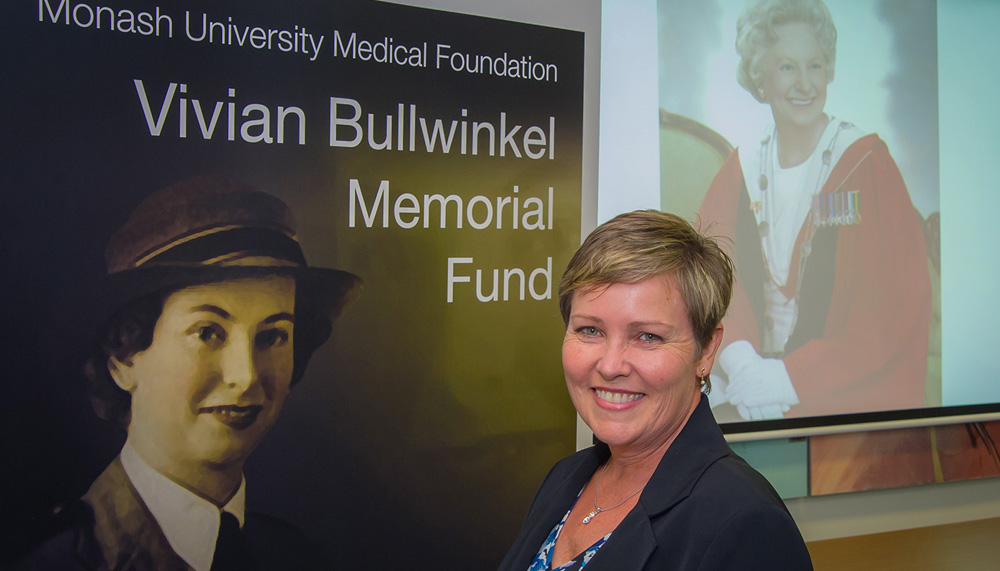History teaches nursing students that their leadership and their vision are vital.
Next year a four-year program of events gets under way to mark the centenary of the landing of the Anzacs at Gallipoli in 1915. During this important period, the valuable work that nurses do in times of war will also be remembered. That the public regards nurses, such as Vivian Bullwinkel and Betty Jeffrey as heroes, and then to generalise from them to all of us, is profoundly validating. But it should also give us pause to think and to ask ourselves questions.
Do we deserve the mantle of the hero? Do we acknowledge and even know the names of the nursing leaders who inspired so many during the dark days of war. For those of us who are charged with educating and inspiring future nurses, have we laid down a legacy for present nurses to follow? Are we assisting them to appreciate their professional history through examination of the past?
The benefits of including the history of nursing in the nursing curriculum are significant. Regrettably though, our research has shown that it occupies a miniscule proportion of classroom hours. In the United States, where 100 years ago history learning was a mandatory part of the nursing curriculum in most states, now no such requirement exists. With few experts being engaged to teach this subject it is no wonder that what we had, we have almost let slip away.
In a previous paper we argued that there is a very real risk that the system of nursing education will produce a generation of orphans – people who don’t know their ancestry and don’t benefit from the strength that knowledge of history affords.
So what are the benefits of a knowledge of history? Here are just four.
- Learning through history can build in students an awareness of continuity and change within society. Knowing, for example, that generations of nurses have been involved in the struggle for equity of access to university education, puts our own present concerns about whether the uni training we are providing is good enough, into perspective. At least we have it!
- At the same time, appreciating the enormous changes that have occurred in health can build respect for our predecessors and inspire people to be part of the continuing change and development that is still to come. For example, when my mother reflects on being a nurse in the 1950s and having to sterilise glass syringes, roll washed bandages and make the porridge for the patients’ breakfasts at the end of night duty, I appreciate what nurses mean when they say it was hard work!
- Awareness of the past can build a sense of connection and strengthen the sense of community. The vocal choir that Vivian and Betty were members of during their time in captivity is a wonderful, humbling and enriching example of the power of community. Can you imagine how powerful those women and nurses must have felt as they harmonised together, revealing their fortitude and resilience to their oppressors? That melding of different voices and talents could become a metaphor for how we might imagine good nursing teams to function – strong, collaborative, hard at work.
- Learning from the past helps people to see that they are not just an isolated individual but part of larger whole that has a long history. It can illuminate heroes who can be role models and symbols of strength. Knowing that Vivan Bullwinkel was a young nurse feeling out of her depth in a strange land with patients who had injuries she had probably never seen before and that she kept hold of her dignity, her humour and her sense of professional duty, made me feel connected to her and also proud. Her experience, and the work she did later, has made nursing a stronger profession. But symbols of strength do not need to be extraordinary or as iconic as Vivian has become. We can find inspiration and the power of belonging whenever we participate in professional meetings. Each time I go to a conference, I always come away feeling that my work is part of something bigger. We each, in our own way, can begin to see that we are contributing to an unfolding history.
So if people need a rationale as to why history should be incorporated into nursing studies, just these four points are argument enough.
But a final one is perhaps the most relevant for our practice: learning about our history can bring the humanities to life for nursing students and reinforces the need for their leadership in humanising health services for all people.
Margaret McAllister is professor of nursing and deputy dean research in the School of Nursing and Midwifery at Central Queensland University.
Do you have an idea for a story?Email [email protected]
 Aged Care Insite Australia's number one aged care news source
Aged Care Insite Australia's number one aged care news source

